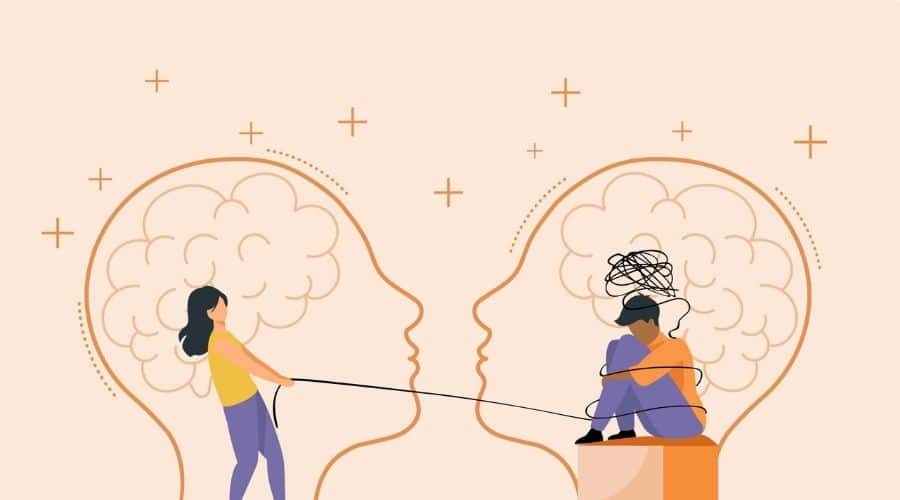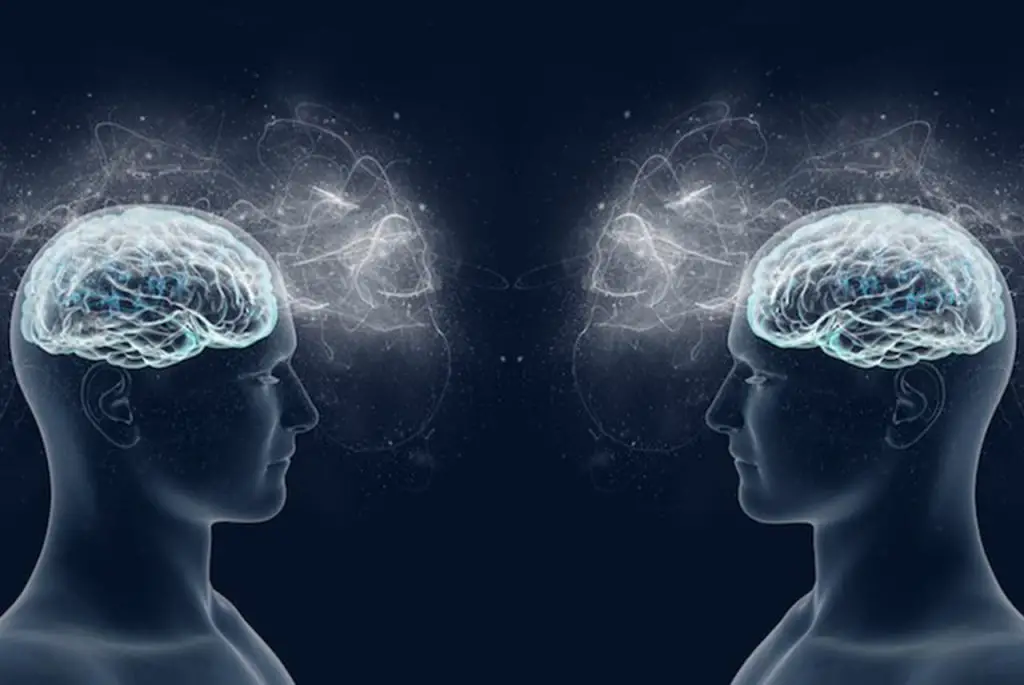Training at the awareness could lead participants to experience disembodiment and oneness, so-called altered states of consciousness, according to a new study by researchers at the University of Cambridge. The findings are published in PLOS ONE.
Is mindfulness training always good?
The team says that while these experiences can be very positive, this is not always the case. Mindfulness teachers and students should be aware that there may be side effects of the training, and students should feel empowered to share their experiences with their teacher or doctor if they have concerns.
Mindfulness-based programs have become very popular in recent years. According to recent surveys, 15% of adults in the UK have learned some form of mindfulness. They are often practiced as a way to reduce stress or cope with depression and anxiety. There is anecdotal evidence that mindfulness practice can lead to alterations in the senses, self, and body boundaries, some even similar to those induced by psychotropic drugs.
From September 2015 to January 2016, the University of Cambridge conducted a randomised controlled trial to evaluate the effectiveness of mindfulness training as a method of coping with exam stress and found that it can help support students at risk of mental health problems.
Dr Julieta Galante of the University of Cambridge’s Department of Psychiatry, who led the trial, said: “There is anecdotal evidence that people who practice mindfulness experience changes in how they perceive themselves and the world around them, but it is difficult to know whether these experiences are a result of practicing mindfulness or whether people who are more prone to such experiences are also more likely to practice mindfulness.

“Because we had conducted a randomized trial of mindfulness practice with several hundred students at Cambridge, we realized that this offered us the opportunity to investigate this further.”
A year later, the team conducting the experiment contacted the participants again to see if they had experienced any of the altered states of consciousness reported anecdotally.
Participants were asked to complete a questionnaire that explored 11 “dimensions,” such as: spiritual experience, state of bliss, disembodiment, and oneness.
In experiences of unity there is a sense that boundaries dissolve and everything, sometimes including the sense of time, is perceived as integrated. Experiences of disembodiment often consist of a feeling of floating or dissolving the boundaries of the body, which can facilitate strong experiences of unity.
In total, 670 participants took part in the randomized study. About a third of each of the mindfulness trial and control arms continued to complete the questionnaire about altered state experiences.
The researchers found that people who had received mindfulness training were twice as likely to experience oneness and disembodiment as those in the control group.

When researchers explored the relationship between the total number of hours of formal mindfulness practice and the presence and intensity of altered state experiences, they found that the more people practiced, the more likely they were to experience oneness, disembodiment, or a state of bliss.
Participants who reported meditating in the previous six months were asked whether altered states of consciousness had occurred during meditation. Based on this subsample of 73 participants, 43% reported experiences of oneness during meditation, 47% reported states of bliss, 29% reported experiences of disembodiment, and 25% reported experiences of insight.
Dr. Galante said: “Although we can’t say for sure, our results at least suggest the possibility that mindfulness training causes these experiences of unity and disembodiment. This is consistent with other studies showing that people who practice mindfulness training are more likely to describe experiencing a sense of relaxed self-boundaries and an expansion of their spatial awareness beyond the physical body.”
Dr. Galante, a mindfulness practitioner, has personally experienced these altered states of consciousness.
“I personally have benefited a lot from meditation and mindfulness and have had a lot of these experiences,” she said. “They were intense and I found it hard to share them with my meditation teacher at first. I didn’t know if they were normal or desirable or if they were a sign of problems with my mental health.”

While many altered state experiences can be interpreted as pleasant, this is not always the case, and Dr. Galante says it is important for teachers and their students to be aware that they can occur and to be open to talking about them.
He added: “The most common and intense experiences tend to be those that have no inherently unpleasant qualities. Some, like bliss, can be extremely pleasurable. But some experiences, like disembodiment or an altered sense of self, might feel unpleasant, or surprising, even alarming, especially if you don’t expect them.
“It is important that people who are offered mindfulness are made aware of the possibility that they may have these experiences. That way, if they do have them, they should not be shocked. There may be nothing wrong with their experience, but it may be helpful for them to consult with their mindfulness teacher and, if the experience was negative, also consider talking to their doctor.”
In-person mindfulness courses help improve mental health for at least six months
An analysis of 13 studies found that adults who voluntarily participate in mindfulness training are less likely to experience symptoms of anxiety and depression for at least six months after completing the programs than adults who do not participate.
Researchers at the University of Cambridge surveyed participants in group, teacher-led mindfulness courses that were taught in person and offered in community settings.
They say the findings, published in the journal Nature Mental Health, should encourage the adoption of similar, teacher-led programs in workplaces and educational institutions eager to help prevent the onset of mental health problems in members of their communities.
“Our previous work has not been clear whether these mindfulness courses could promote mental health in different community settings,” said lead researcher Dr Julieta Galante, who conducted the research while at the University of Cambridge. “This study is the highest-quality confirmation yet that in-person mindfulness courses typically offered in the community actually work for the average person.”

In these courses, mindfulness is usually defined as “the awareness that emerges from paying attention on purpose, in the present moment, and nonjudgmentally to the unfolding of experience moment by moment.”
These courses, formally known as mindfulness-based programs (MBPs), often combine elements of meditation, body awareness, and modern psychology and are designed to help reduce stress, improve well-being, and build mental and emotional “resilience.” They consist of groups of participants led by mindfulness teachers, who promote reflection and sharing over several one- to two-hour sessions.
The body of research on the effectiveness of MBPs to date has been mixed. The Cambridge researchers sought to confirm the effect of MBPs on psychological distress, which includes disturbing or unpleasant mental or emotional experiences, including symptoms of anxiety and depression.
They collected and analyzed data from 2,371 adults who had participated in trials to evaluate the effectiveness of MBPs. About half of the participants were randomly assigned to eight-week mindfulness programs, with either one hour or two and a half hours of sessions per week, and compared them to those who did not via self-reported questionnaires.

The study found that MBPs produced small to moderate reductions in psychological distress in adults, with 13 percent more participants reporting a benefit than those who did not participate in an MBP.
The researchers found that pre-existing psychological distress, age, gender, education level, and predisposition to mindfulness did not alter the effectiveness of MBPs.
Galante said: “We have confirmed that if adults choose to take a mindfulness course in person, with a teacher and offered in a group setting, it will, on average, be beneficial in terms of helping them reduce their psychological distress, which will improve their mental health. However, we are not saying that it should be done by every single person; research shows that it just doesn’t work for some people.
“We’re not saying you should absolutely choose a mindfulness class over something else you might benefit from, like a football team—we don’t have evidence that mindfulness is better than other practices that make you feel good—but if you’re not doing anything, these types of mindfulness classes are certainly options that can be helpful.”
The researchers conducted a systematic review to select previous studies to include in their large-scale analysis. They obtained complete but anonymized data from 13 trials representing eight countries. The average age was 34, while 71% of participants were women.

Although mindfulness apps are on the rise, researchers are still unsure whether it’s the mindfulness practice that reduces psychological distress or the fact that the courses involve in-person group work with a teacher.
“Apps may be cheaper, but there’s not the same evidence base for their effectiveness,” Galante said. “Some apps may say they’re evidence-based, but they’re often referring to in-person testing with a teacher and a group.”
The effectiveness of smartphone apps and what happens when people continue to practice mindfulness meditation on their own will be explored by Galante, who recently took up a new post as deputy director of the Contemplative Studies Centre at the University of Melbourne.
“If you’re offered a four- or eight-week mindfulness course in a face-to-face group setting with a teacher, and you’re curious, I would say, based on this study, go ahead and try it,” Galante said. “And for organizations wondering whether to offer these kinds of mindfulness courses to their community members, this research suggests that it could be a good investment if their communities express interest.”
#Mindfulness #training #lead #altered #states #consciousness